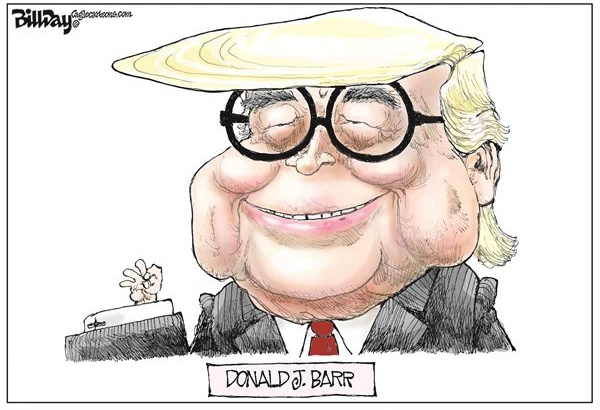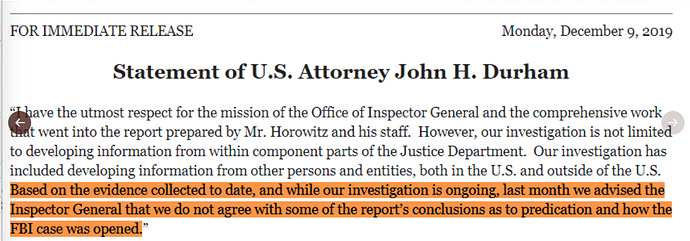President Trump is openly telegraphing that he fully expects his attorney general to validate one of his biggest lies: that the real crime in 2016 wasn’t Russia’s sabotaging of our election but rather the decision by law enforcement to investigate it.
New public comments from William P. Barr provide Trump with ample grounds for being confident that Barr will deliver for him.
But Barr’s latest claims about the Russia investigation rest on a serious misrepresentation that has not gotten the focus it deserves — and is more pernicious than it first appears.
In a much-discussed interview with NBC News, Barr criticized the Department of Justice’s inspector general for concluding that the FBI’s launch of an investigation into Russian interference — and potential Trump campaign coordination with it — had a legitimate basis.
Barr’s full interview is now online, and it’s worse than you thought. It whitewashes away a crucial aspect of the I.G.’s conclusions in a way that’s easy to overlook but serves Trump’s political needs in deeply disingenuous fashion.
One key argument Barr makes is that the FBI’s decision to launch that investigation had a “very flimsy” basis that lacked “sufficient predication.”
Barr casts this as rooted in deeply held pro-democracy principles. He claims “the incumbent government used the apparatus of the state” to “spy on political opponents,” in a way that could have affected “the outcome of the election” and thus posed a “danger to our free system.”
Barr claims there was never any serious evidence of “collusion” and excoriates the FBI for having an inadequate basis for launching the investigation, given the “very potent powers” the FBI has at its disposal. “At the end of the day,” he asks, “is what you’re relying on sufficiently powerful to justify the techniques you’re using?”
And Barr insists the inspector general’s analysis of this was “very limited,” vowing that his own forthcoming review would take a much more thorough look at the investigation’s genesis.
Barr’s deceptive whitewash
In saying those things, Barr is rewriting the story of 2016 in a subtle but consequential way. He’s implying that the FBI’s initial investigation was only motivated by what it had learned about the Trump campaign’s intentions with regard to coordinating with Russia’s electoral subversion effort.
But Barr is leaving out crucial facts and context. In fact, when the FBI launched this investigation, it had already developed an awareness that Russia was undertaking this attack on U.S. democracy — separate and apart from any Trump campaign involvement with it. This was a critical reason the FBI launched its investigation.





